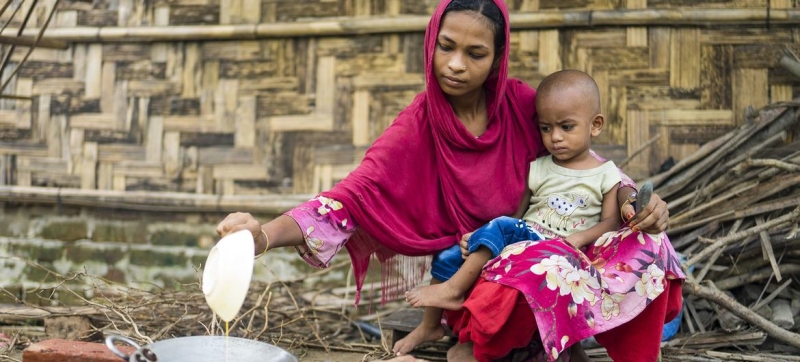
Currently, 75 percent of refugees live in low- and middle-income countries. Global poll finds global population overwhelmingly supportive of refugees Refugees and Migrants
A major survey of attitudes towards refugees in the global North and South shows that three-quarters of adults still believe that people fleeing war or persecution should be able to seek asylum in other countries.
The results of the survey, conducted by Ipsos, a global leader in market research, in collaboration with the UN Refugee Agency (UNHCR), were released ahead of World Refugee Day, which is marked on June 20. The findings paint a complex picture of perceptions of refugees, with opinions varying significantly depending on where respondents live.
Overall, 73 percent of people in 52 countries agreed that people should be able to seek asylum in other countries. However, in a number of countries, support for the idea of asylum has fallen from its record high in 2022, set after Russia’s full-scale invasion of Ukraine.
Interviewees in countries with long traditions of hosting refugees, such as Uganda and Kenya, generally showed a high degree of optimism about refugee integration and its positive impact on the state of affairs in their own country. Half of those surveyed believe that refugees can receive full rights to education in their host country, and almost as many support their full access to health care and work. About three-quarters of those surveyed to some extent support policies that allow refugee families to be reunited in the country that granted them asylum.
Read also:
The number of refugees in the world has reached 114 million
However, some major host countries, mostly in the West, show less positive sentiment, including concerns about the ability of refugees to integrate. While a third believe refugees will make a positive contribution to their country’s labour market, economy and culture, another third hold the opposite view. The survey also found concerns about the impact of refugees on national security.
“It is vital to listen to and understand public opinion about refugees – both positive and negative,” said Didier Truchot, CEO and founder of Ipsos. “This is the best way to address concerns and ensure that people fleeing the world’s worst tragedies continue to receive the support they deserve.”
Despite concerns and scepticism about the impact of refugees on host communities, many people are taking concrete action to support refugees. A third of those surveyed support them through donations or through social media. Currently, 75 percent of refugees live in low- and middle-income countries. Thirty-seven percent of those surveyed believe that international assistance to countries hosting refugees is insufficient.
“These days, populists often blame refugees for all of society’s ills,” says Dominic Hyde, UNHCR’s Director of External Relations. “We must do much more to explain to sceptics why refugees should be welcomed rather than ostracized. The erosion of public trust and empathy is a huge obstacle to creating a safe and welcoming environment for refugees.”
